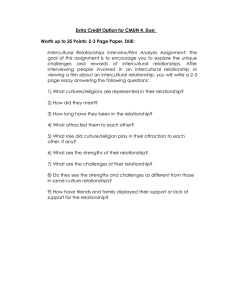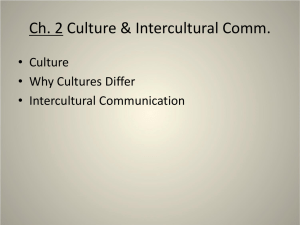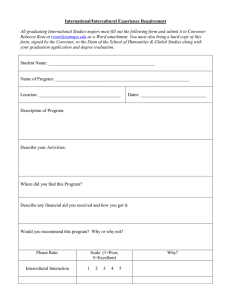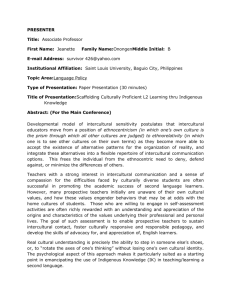PIESKI, MARY KAY FLORENCE, Ph.D., August 2011 Education, Health, and Human Resources
advertisement
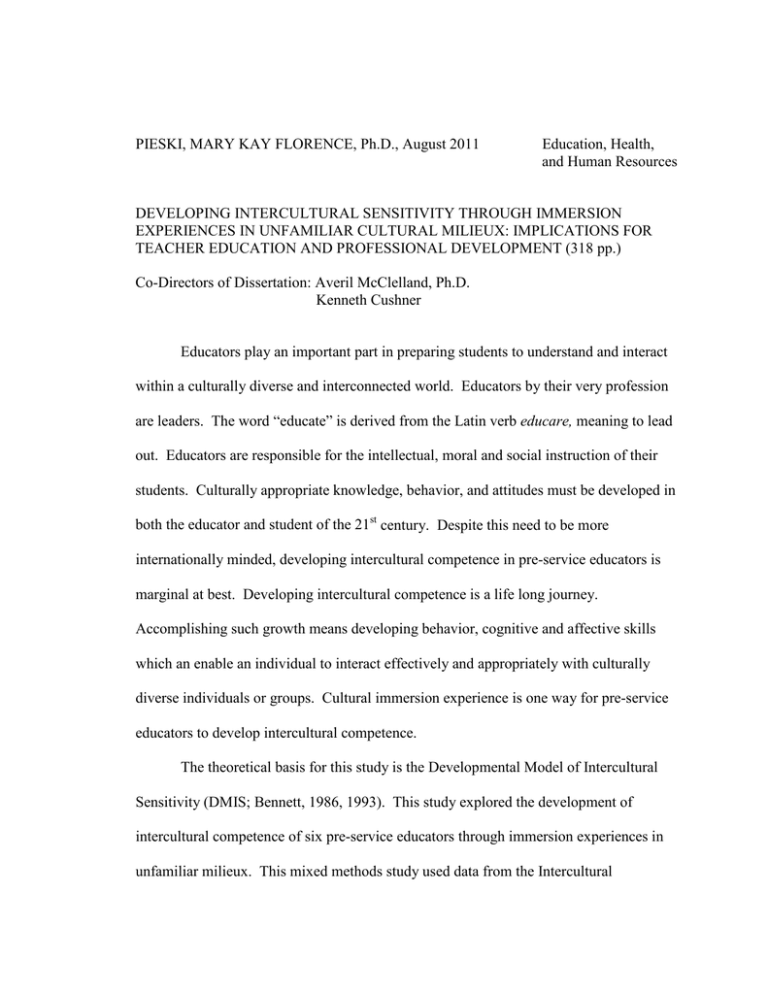
PIESKI, MARY KAY FLORENCE, Ph.D., August 2011 Education, Health, and Human Resources DEVELOPING INTERCULTURAL SENSITIVITY THROUGH IMMERSION EXPERIENCES IN UNFAMILIAR CULTURAL MILIEUX: IMPLICATIONS FOR TEACHER EDUCATION AND PROFESSIONAL DEVELOPMENT (318 pp.) Co-Directors of Dissertation: Averil McClelland, Ph.D. Kenneth Cushner Educators play an important part in preparing students to understand and interact within a culturally diverse and interconnected world. Educators by their very profession are leaders. The word “educate” is derived from the Latin verb educare, meaning to lead out. Educators are responsible for the intellectual, moral and social instruction of their students. Culturally appropriate knowledge, behavior, and attitudes must be developed in both the educator and student of the 21st century. Despite this need to be more internationally minded, developing intercultural competence in pre-service educators is marginal at best. Developing intercultural competence is a life long journey. Accomplishing such growth means developing behavior, cognitive and affective skills which an enable an individual to interact effectively and appropriately with culturally diverse individuals or groups. Cultural immersion experience is one way for pre-service educators to develop intercultural competence. The theoretical basis for this study is the Developmental Model of Intercultural Sensitivity (DMIS; Bennett, 1986, 1993). This study explored the development of intercultural competence of six pre-service educators through immersion experiences in unfamiliar milieux. This mixed methods study used data from the Intercultural Development Inventory, (Hammer & Bennett, 2007, 2009), a measure of intercultural sensitivity grounded in the DMIS, as a pretest, post-test and post-post test, application form, pre- and post experience questionnaires, interviews and journals to ascertain development. Findings from this study demonstrate that pre-serviced educators can benefit from developmentally effective immersion experiences. Several participants experienced a small gain in intercultural sensitivity as measured by the IDI after a regression upon reentry. Intensive appropriate sequenced intercultural preparation prior, during, and after the immersion experience could enhance the impact of the experience on the intercultural competence development as measured by the IDI.
